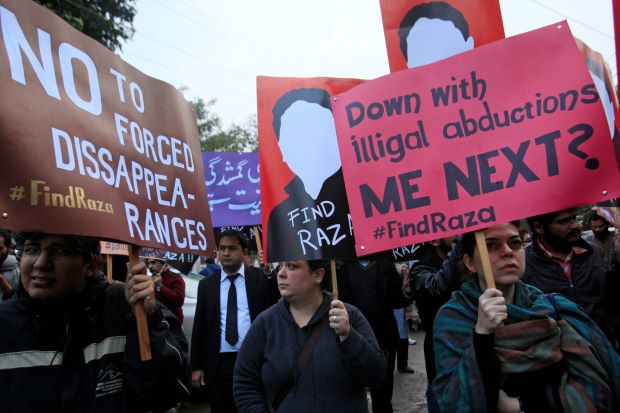
Enforced disappearances are old in Pakistan. Since March 2011, 8,463 complaints of enforced disappearances have been received by Pakistan’s Commission of Inquiry on Enforced Disappearances. Activists estimate the real number to be higher. While enforced disappearances happen all over the country, the Baloch are the worst affected and have yet to find reprieve.
On June 24, Islamabad High Court Chief Justice Athar Minallah issued an order in the missing persons case that stated: “When there is sufficient evidence to conclude that it is, prima facie, a case of ‘enforced disappearance’ then it becomes an obligation of the State and all its organs to trace the disappeared citizen. This obligation will remain effective and perpetual till the victim has been traced or credible information gathered through effective investigation regarding his/her fate.”
This statement is striking considering the recent case of Arsalan Khan in Sindh.
Last week, the Sindh Rangers apprehended social media activist and journalist Arsalan Khan from his home. The “disappearance” provoked outrage online, with people demanding the government explain how anyone could be taken into custody by the Rangers without any warrant or investigation.
International human rights watchdog Amnesty International issued a statement expressing “deep concern by Khan’s arrest. Pakistan must end this abhorrent practice of punishing dissent by wrenching people away from their loved ones.”
Khan was later released, and the Sindh Rangers issued a statement alleging links to a terrorist organization. “During the interrogation, it was revealed that the accused had received financial assistance from a terrorist organization. However, he was released after being warned to cooperate with the ongoing investigation in future it said, adding that the case was being handed over to the relevant authority for a probe into alleged white-collar crime.”
![]()





